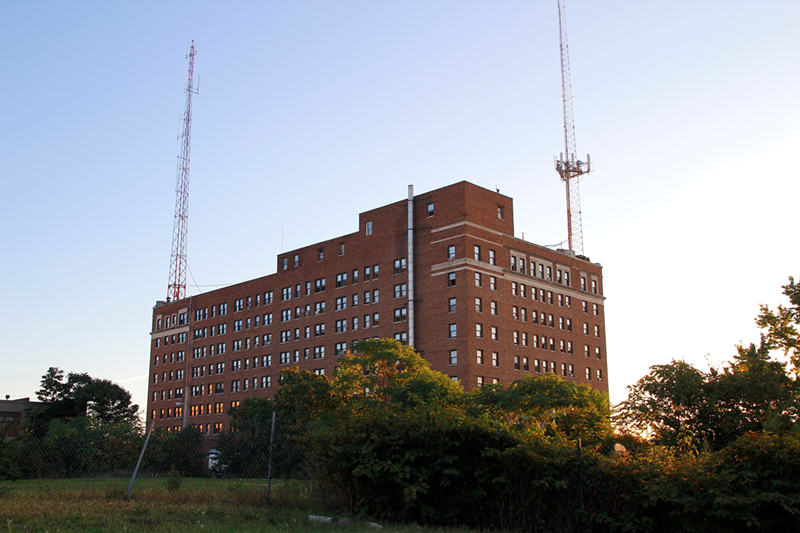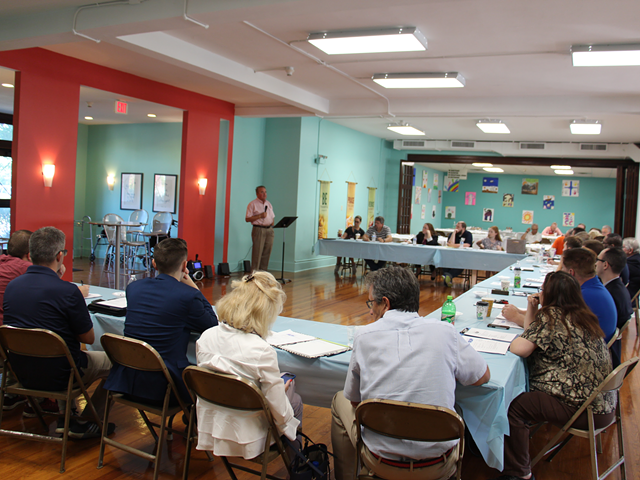Good morning all. Here’s some quick news for you today.
Mayor John Cranley and Councilwoman Yvette Simpson last night squared off in their first televised mayoral debate, which was hosted by WKRC. If you’ve been paying attention to the race over the last few months, the tense battle between the two was probably familiar to the point of déjà vu. As in their last debate, Cranley hit Simpson on her vote on a motion that would have required Children’s Hospital to chip in more money for Avondale as it embarks on a $500 million expansion there — a move critics have called a “shakedown” of the hospital. Simpson painted Cranley as beholden to the city’s business leaders and moneyed interests, meanwhile casting herself as a grassroots candidate. Between the sparing, both presented sketches of how they’d address issues like transit — Simpson wants to start by redesigning bus routes for the first time in decades, for example, while Cranley wants to partner with rideshare companies to get residents to bus stops. But there were few new revelations at the debate, even as the two have rolled out more detailed policy ideas of late — Cranley on affordable housing and Simpson on youth issues and childhood poverty. As we head into the final month before the Nov. 7 election, you can expect a lot more tussling between the two.
• Federal District Court Judge Timothy Black will hear oral arguments Friday at 10 a.m. in the lawsuit against the U.S. Department of Housing and Urban Development brought by residents of The Alms in Walnut Hills. As we detailed in this story last week, HUD is seeking to withdraw its subsidies from the 200-unit apartment building after decades of neglect by various owners. Residents, the Greater Cincinnati Homeless Coalition and Greater Cincinnati Legal Aid are suing to keep HUD from withdrawing from The Alms after developer Milhaus, the building's court-appointed receiver, has spent hundreds of thousands of dollars on repairs there.
• A series of benches on Third Street downtown won’t be demolished by the city just yet after Vice Mayor David Mann raised questions about their removal. One block of the benches were destroyed last week, and the rest were slated for a similar fate until Mann and advocates for the homeless stepped in. Businesses in the area lodged complaints about “lewd and lascivious” behavior happening behind the benches. The city intended to replace them with more transparent benches so that police officers could see behind them more easily, but that plan is on hold. Critics say the plan was a way to discourage people from congregating in the area, which is between the headquarters of some of Cincinnati’s largest businesses and riverfront development The Banks.
• Is Cincinnati’s growth among the slowest in the nation when compared to peer cities? A study by personal finance site WalletHub says yes, but a local economics analyst says not so fast. WalletHub’s study ranked Cincinnati 204th out of 249 mid-sized cities when it came to economic growth. But Richard Stevie, a vice president at Cincinnati-based Integral Analytics, tells the Cincinnati Business Courier that there’s a fatal flaw in that study — Wallet Hub only considered the city itself and not the Greater Cincinnati Metropolitan Area, even though other cities have grown their economies by expanding geographically at a time when Cincinnati can’t. Despite that, there are some interesting points in the study — namely, that the city’s population growth is lagging most other cities. The metro area has grown about half as quickly as the national average in recent years.
• Here’s one sector of the economy that has grown quickly in Cincinnati and across the state: Craft breweries across Ohio now employ 16,000 people. Of course, maybe take that with a grain of salt (or swig of beer) — those numbers were generated by a national beer trade group called the Brewers Association. There are more than 200 independent brewers in the state, the industry group says, and they generate about $2.67 billion in economic activity — up half a billion dollars since 2014.
• A lot of local companies are hoping to jump into another potential growth industry (no pun intended). Nineteen companies with Greater Cincinnati roots filed applications to operate grow sites for medicinal marijuana, according to records released by the Ohio Department of Commerce Friday. The state will grant 12 licenses for large sites (as big as 25,000 square feet) and another 12 for smaller sites up to 3,000 square feet. Among the local companies: a new business owned by Rhinegeist founders that would operate in Camp Washington, a company called Blu Script LLC, which wants to operate at Third and Gest streets in Queensgate and another company called BlueSky Wellness LLC that wants to start a grow site on Dalton Avenue in the West End.
• Finally, Kentucky Gov. Matt Bevin yesterday responded to the horrific shootings that killed 59 and injured more than 500 in Las Vegas Sunday night, tweeting that the incident isn't about gun regulations and that "you can't regulate evil." That take has netted Bevin a harsh response on the social media site, with thousands of angry users berating him. It is hard to square Bevin's nascent stance as an anarchist who feels legal structures are useless against human nature with his job executing an entire state's laws.






